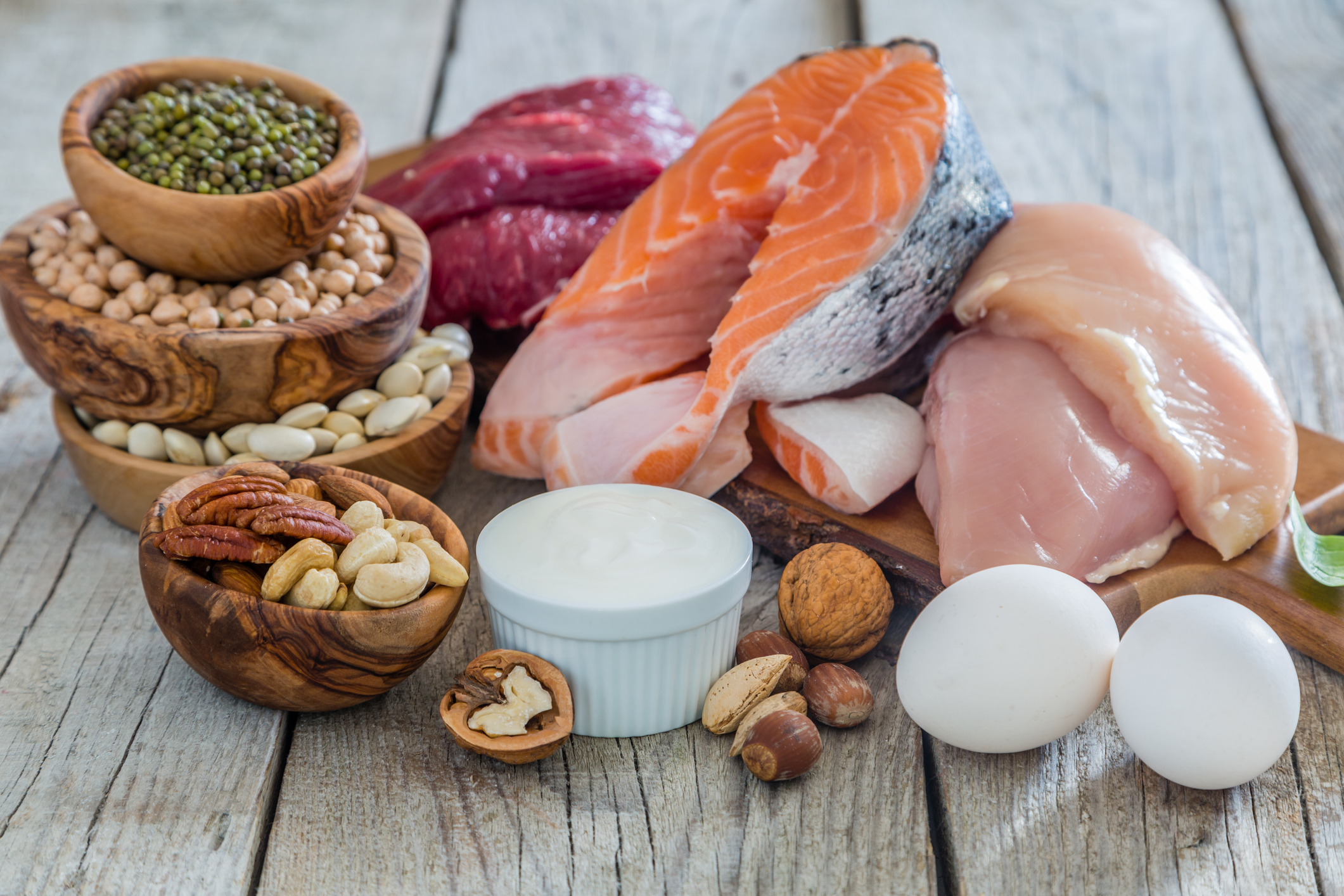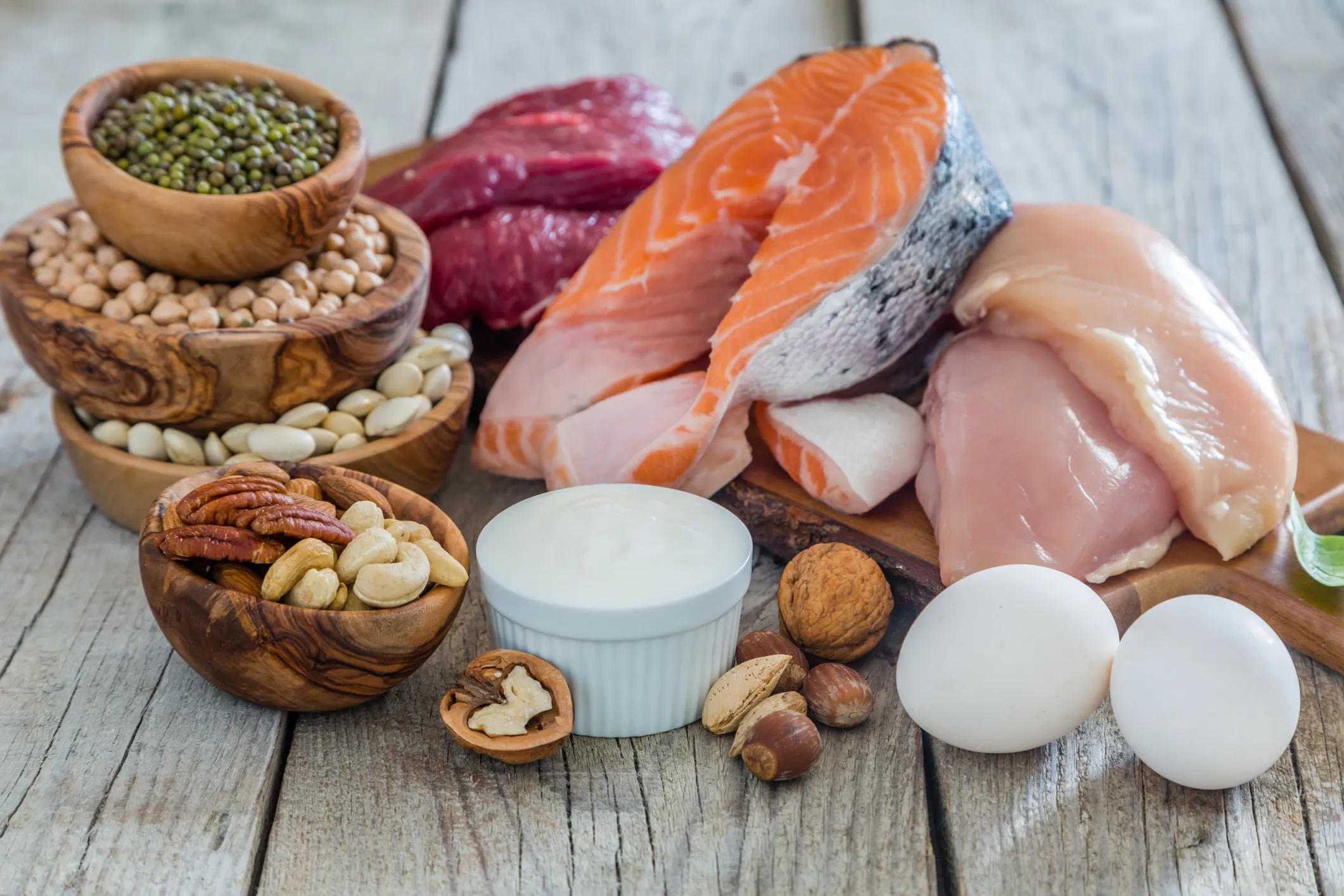How Much Protein Should I Have in My Diet?
Why does my body need protein?
Your body needs protein to rebuild and repair muscle tissue, keep your immune system working properly and to keep your hair, nails and skin strong and durable. Each time you exercise, your muscles break down to be built back stronger. Protein helps with this natural process. Eating protein alone does not build muscle, but if you combine it with a good workout regimen, you’ll increase your muscle mass. The best time to eat protein is 30-90 minutes after exercising when your muscles are primed to use it.

Can protein help me lose weight?
Weight loss is ultimately a matter of consuming less energy overall, but some people have an easier time losing weight by eating a diet higher in protein because protein helps you feel full. Feeling full can help prevent you from overeating at meals and grazing on unhealthy snacks between meals.
How much protein should I eat?
While protein needs vary, most people should aim for about 7 grams of protein for every 20 pounds of body weight. For example, if you weigh 150 pounds, shoot for about 53 grams of protein daily. However, if you are trying to build muscle, you may need closer to 12 grams of protein per 20 pounds of body weight. It’s important that you don’t go overboard- too much protein can also lead to dehydration and weaken your bones over time.
What’s the best source of protein?
Great protein options include fish, chicken, eggs, low-fat dairy, nuts, seeds, black beans and legumes.
Here’s how some popular protein sources stack up:
- 3 ounces of lean meat (like chicken) = 24-27 grams
- 4 ounces of fish or shellfish = 18-22 grams
- 6 ounces of plain, nonfat Greek yogurt = 17 grams
- 1 cup of beans or lentils = 15 grams
- 1 egg = 6 grams
- 1 ounce of whole, unroasted almonds = 6 grams

Lisa Anderson is the Clinical Nutrition Manager at Aramark Healthcare and Chesapeake Regional Healthcare.